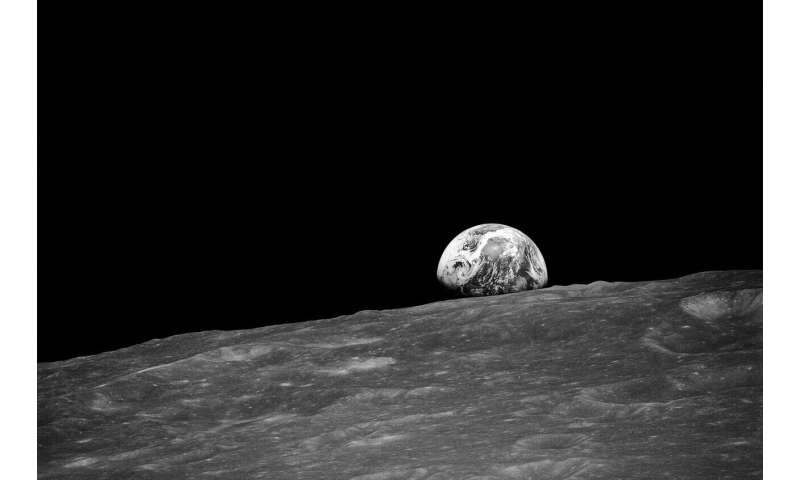Engineer to develop more powerful rocket engines for space travel

A University of Texas at Arlington engineering researcher has received a NASA grant to use rotating detonation rocket engines (RDREs) for in-space propulsion to make them more efficient, compact and powerful.
Liwei Zhang, an assistant professor in the Department of Mechanical and Aerospace Engineering (MAE), will lead the project.
"Detonation is very fast combustion. Inside an RDRE, detonation waves spin around in a circle at supersonic speeds. Compared to conventional engines that rely on regular combustion, an RDRE has a theoretically higher efficiency, and can be made smaller and more compact," Zhang explained.
"Our work will focus on the component level, evaluating injectors, combustors and nozzles. We will also study system-level configurations for testing. It's a collaborative effort among theoretical analyses, computational simulations and experimental measurements to assess and improve the performance of this type of engine.
Zhang said the work is important because it aims to develop more efficient propulsion systems for space travel, sending people to explore the moon and beyond.
NASA is addressing the call from the National Space Exploration Campaign through the Artemis Program, using new technology to study the moon in better ways and to prepare for future missions."
Co-investigators are Frank Lu, professor in MAE, and Grace Brannon and Monica Mengqi Zhan, assistant professors in the Department of Communication.
"Frank played a pivotal role in securing this grant through his expertise in detonation engines," Zhang said. "He, and our late, beloved Don Wilson (professor in MAE) started the Aerodynamics Research Center (ARC) on campus 37 years ago. Since then, they have led many exciting studies on detonation engines. All testing for our M-STAR project will take place at the ARC."
Lu said he is "glad to be recognized by NASA for our expertise in rotating detonation engines that can play a role in this game-changing technology. It is also gratifying that NASA recognizes UTA as an institution at the forefront of engagement in underrepresented communities."
Zhang said the project has educational goals as well. There is a component of K-16 education for underrepresented communities of students.
"We want to recruit and retain them, and empower them to establish careers in space," Zhang said. "We want younger people to understand that there are ways for them to enter this track. If you have an interest, follow your heart. Many people think of space education as an elite type of study. They've been discouraged. It's not just a technical obstacle but a mental one, too."
"How we communicate educational goals early on in the K-16 education system can have a huge impact on students' self-efficacy and even educational attainment," said Brannon, who is a first-generation college student herself. She recognizes how important the role of communication is in encouraging students to set and achieve goals, even if they haven't been historically well-represented in their specific fields of interest.
Zhang said the education program draws on years of extensive teamwork research on diversity. "We are committed to breaking down barriers by implementing interventions that challenge stereotypes and prejudices. Our goal is to create an inclusive environment that enhances the teamwork experiences of underrepresented minority students and researchers, ultimately bolstering retention rates and fostering innovation."
Erian Armanios, MAE chair and professor, said this type of project is becoming mainstream at UT Arlington.
The UTA project is part of the NASA MUREP Space Technology Artemis Research (M-STAR), which supports NASA's Space Technology Mission Directorate (STMD) by fostering and increasing minority-serving institutions' participation in research and technology development concepts that align with the agency's needs for upcoming Artemis missions to the moon.
"When we return humans to the moon, it will be thanks to the creativity and dedication of researchers across the nation," said Walt Engelund, deputy associate administrator for programs in STMD. "We're proud to partner with OSTEM (Office of STEM Engagement) to foster the future of technology development and create opportunities for these institutions to contribute to NASA's Artemis missions."
Provided by University of Texas at Arlington